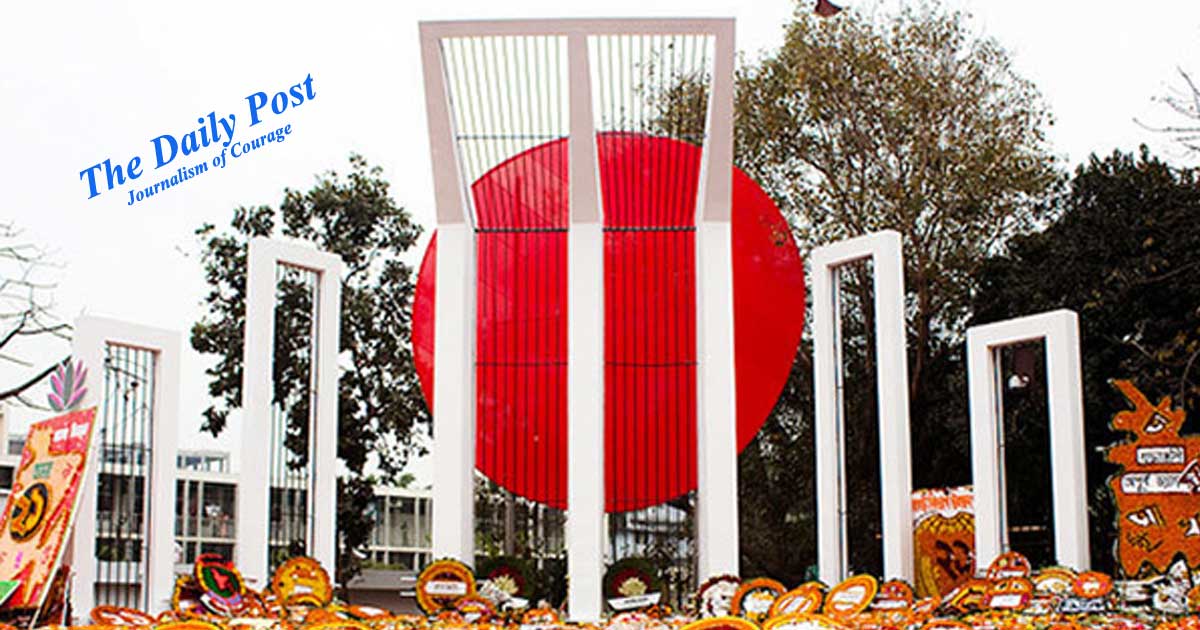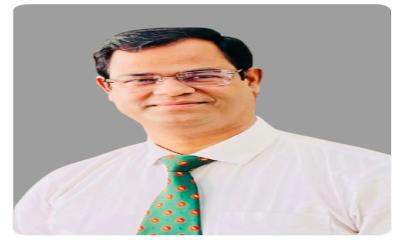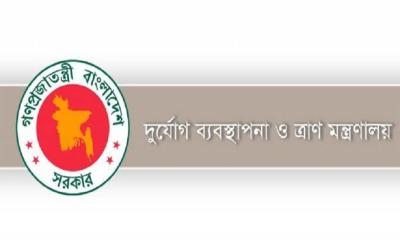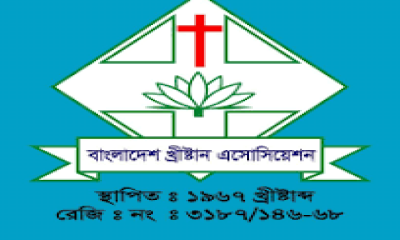When Shri Dhirendranath Dutt spoke in Karachi in February 1948 in the Constituent Assembly of Pakistan to include Bengali as one of the state languages, his argument was that the majority of the people of Pakistan (the population of East Pakistan at that time was 44 million out of 69 million) spoke Bengali.
The sense of life of so many people will be developed by using Bengali language as mother tongue. When the Pakistan movement began to mature on the basis of the two-nation theory, the Bengali intellectuals began to have doubts about the status of the Bengali language. As a result, within a year of the establishment of Pakistan, when the first East Pakistan Literary Conference was held on December 31 and January 1, 1948 or 1949, Dr. Muhammad Shahidullah said in his speech, "We are Bengalis more than we are Hindus or Muslims. This is not idealism, it is reality. Mother Nature has left such an impression of Bengaliness on our face and language that there is no way to cover it with mala-tilak-tiki or tupi-lungi-dari.”
Dr. The basis of Shahidullah's statement was that the Bengali language, indeed any language, has a non-communal character. It will be the main goal to create a sense of life, knowledge and vision through the mother tongue of both Hindus and Muslims in the then East Pakistan. There is no question of retaining Bengal there.
Bangabandhu Sheikh Mujibur Rahman established its international status by delivering a speech in Bengali language at the 29th session of the United Nations General Assembly on 25 September 1974. In an order as President on March 12, 1975, he said, 'Bangla is the national language of the People's Republic of Bangladesh. Bengali is our national language. However, it is very sad to note that even after three years of independence, documents are being written in a foreign English language instead of the mother tongue in most of the offices and courts. It is difficult to believe that he who does not love his mother tongue, has love for his country.
The context in which Bangabandhu's angry speech was uttered has not changed much. What is changing is not because the love for Bengali or skill in Bengali has increased, it has increased because of the love for English and the weakness in English due to various reasons. That is, the consciousness is still working that it is not possible to move the country forward through Bengali language. If you want to make all the people of the country a fellow traveler in the path of freedom and knowledge, there is no other way but to rely on the Bengali language.
In 1952, the all-party Rashtrabhasa Sangram Parishad was formed in Chittagong to demand the establishment of Bengali as the national language along with Dhaka. The convener of this committee was Mahbub-ul Alam Chowdhury and the second convener was Chowdhury Harunur Rashid and MA Aziz. On February 11, 1952, a strike was observed in all the educational institutions of Chittagong. The news of firing on the students in Dhaka came to journalist-literater Khondkar Mohammad Ilyas, a member of the Central Language Struggle Council in Chittagong. Mahbub-ul Alam Chowdhury was suffering from jaundice and waterlogging. Labor leader Chowdhury Harunur Rashid and Awami League's young leader MA Aziz were therefore working as convenors.
After hearing the news of the police firing on students in Dhaka, he composed the poem titled 'I did not come to cry, I came with a demand for hanging'. Due to illness, Mahbub-ul Alam Chowdhury did not have the ability to write. He was reciting the lines of the poem and colleague Nani Dhar wrote them down. This is the first poem of twenty-one. Khondkar Mohammad Ilyas took responsibility for publishing the poem in booklet form at Kohinoor Electric Press in Andarkilla. The intention was to work overnight at the press and publish the pamphlet in secret the next morning. On the first page of this pamphlet of one form was the title 'I did not come to cry, I came with a demand for hanging' and below it was the name of the poet Mahbub-ul Alam Chowdhury. Kamaluddin Khan was named as the publisher and Dabiruddin Ahmad, the press manager, as the minter. A group of policemen led by Superintendent of Police Alamgir Kabir raided the press on a winter night when the composing and proofing work was nearing completion. Khondkar Mohammad Ilyas hid in the intelligence of the employees present in the press and the whole composed matter was saved. The police searched frantically but found nothing. Employees of Kohinoor Electric Press surreptitiously completed the printing and binding of about 15,000 copies of the booklet for sale and distribution.
A general strike was observed throughout Chittagong on February 23 to protest the firing in Dhaka. Chowdhury Harunur Rashid recited the poem 'I did not come to cry, I have brought the demand for hanging' in the crowd of the all-party protest meeting held at Laldighi Maidan at 3 pm. After hearing the poem, the angry crowd chanted 'Let's go to Dhaka, we want the fall of the murderer League Shahi', 'We want the hanging of League leaders, we want the death of Nurul Amin'. A few days later, the Muslim League government confiscated the poem.
JH






